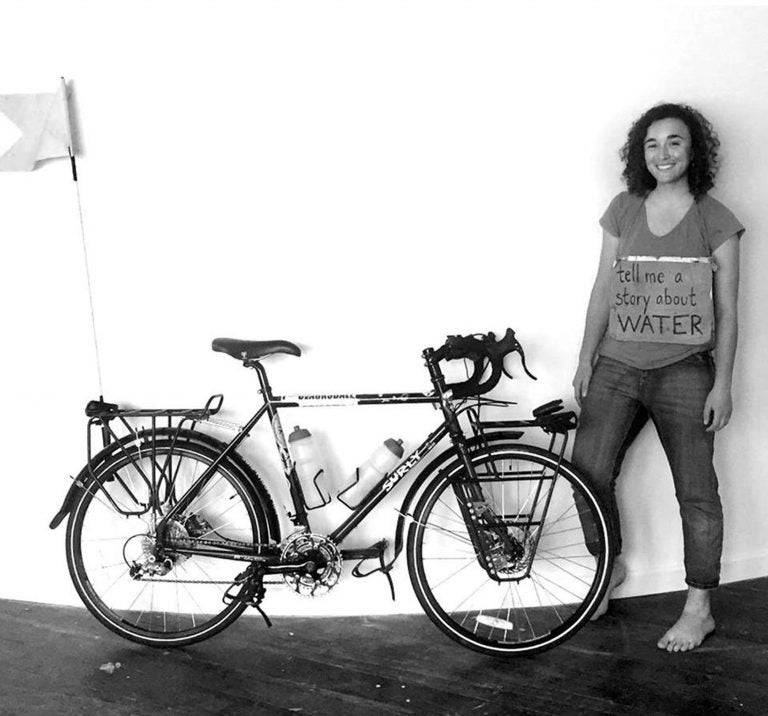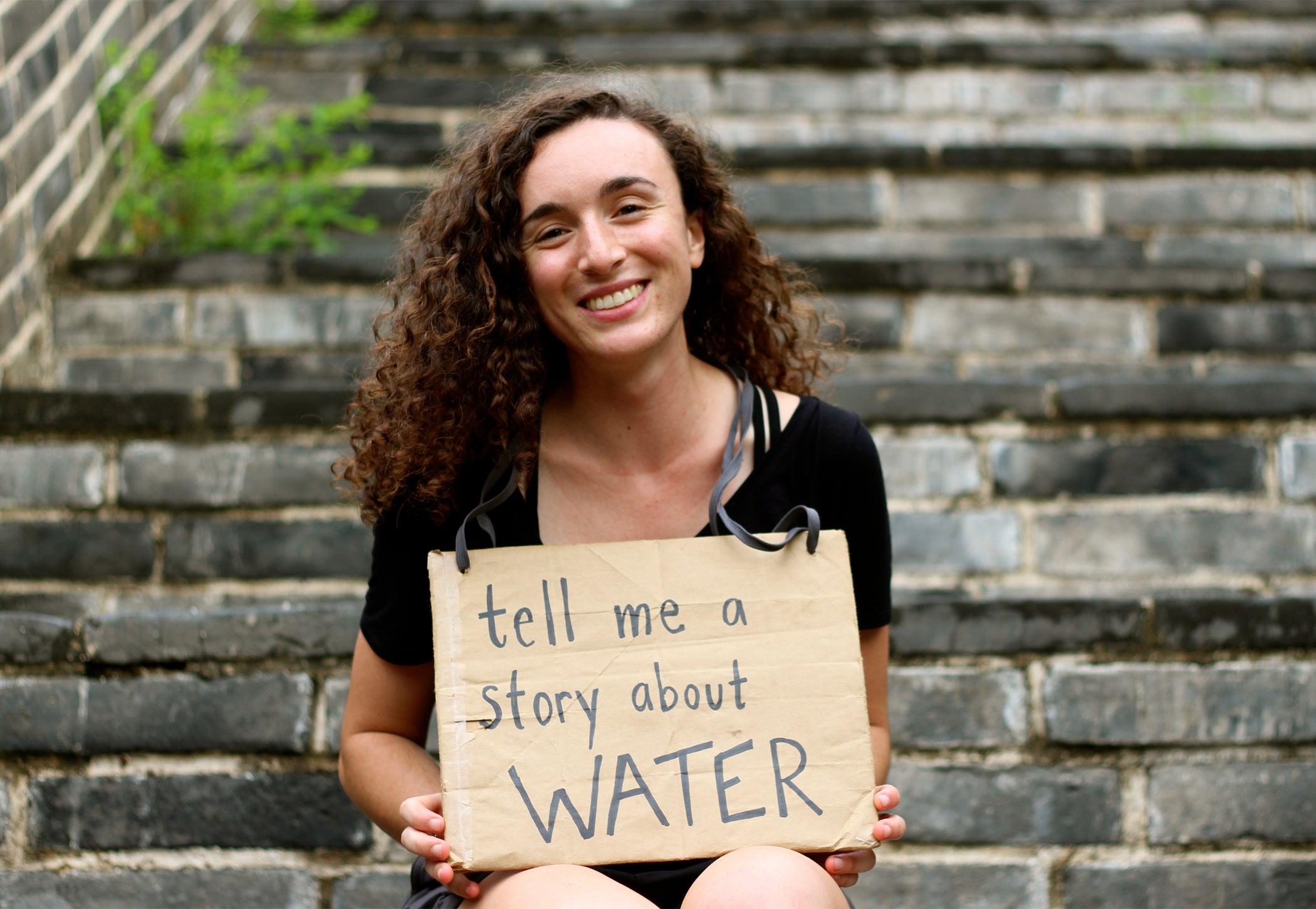Water stories: 1,001 voices from around the world
After a bike ride down the Mississippi, Devi Lockwood set out to record water stories on every continent. Here are two: one from Afghanistan, the other from China.
Listen 6:47
For four years, Devi Lockwood has been traveling around the world to record 1,001 stories about water and climate change. (Image courtesy of Devi Lockwood)
In the summer of 2013, I rode my bike for 800 miles along the Mississippi River. I set out in Memphis, Tennessee, and ended up in Venice, Louisiana — where the river spills into the Gulf of Mexico.
I had a cardboard sign that I’d wear around my neck with the words “Open Call for Stories.”
I heard more than 50 hours of stories, many of them about water, especially water in a changing climate.
Since then, I’ve collected stories in 19 countries. And wherever I am, in cities or farm towns, developing nations or industrialized nations, people have told me about the water they drink.
I met Ashan Illah at an innovation and ideas festival in Almaty, Kazakhstan. All weekend, I’d worn my cardboard sign, asking for stories. On the last day, as organizers cleaned up the room and folded up chairs, Illah approached me. He was 20-something, wore glasses, jeans and a button-up dress shirt.
He said he wanted to tell his story for the first time.
“Where I was born, we [did] not have enough water,” he began in halting English.
He was born in a rural home in Afghanistan, alongside a river where his family got their drinking water.
In order to make the water safe to drink, the family kept a fire in the middle of the room and boiled the water there.
Illah says one day, when he was 6 or 7 years old — his brother was a toddler — his parents were away, and the boys were alone with the boiling water.
As he collected himself to tell me the next part of the story, Illah was visibly shaking.
“My … my little, little brother come and … just … pull it,” he said. “And it was dropped in him.”
The boiling bucket of water toppled onto the toddler. Illah’s brother died that day.
The experience haunts him.
“Most of time [when] I just drinking water, I remember how I lost my brother,” he said.
He thinks about how if the family had only had clean drinking water, his brother would still be alive.
Years later, Illah is still trying to respond to this tragedy. He dreams of developing the green technology that will solve the problem of unsafe drinking water in Central Asia.
His family moved to Kazakhstan and he went to school to study civil engineering, and today he’s hoping to get into a master’s program.
“If I lost my brother,” he says, “maybe someone don’t lost in the future, because the water was clearer.”
For now, though, access to water in his hometown is still much the same.
Legend at the Great Wall
As I’ve traveled the world with my bike, people have been generous with all kinds of stories — some are sad, others are more lighthearted.
A few years ago, I met Jo Darrington in Beijing. Darrington’s a tall Singaporean with a big smile and a quick laugh. Her black hair was dyed with streaks of blonde and green.
We traveled together to the Great Wall of China.
We climbed a hill to a wild stretch of the wall called Xiangshuihu, which Darrington said means “sound” or “echo of water.”
We scrambled on the crumbling stone steps with plants grown up through the cracks.
The view was stunning. The hills were jagged and green. It was the kind of place where you could feel the weight of the past.
We stopped at a point overlooking a dramatic valley that was dried up and Darrington began to tell me a folktale.
She said, the story begins 600 years ago, when soldiers were building this stretch of the Great Wall. It was a dry season and the laboring soldiers were suffering from thirst.
“One day there was a woman who appeared and she gave them some water. And then she mysteriously disappeared,” Darrington said.
Legend has it that the woman was Bodhisattva Guanyin, a figure in Buddhist lore who carries a jar of pure water in her left hand and a willow branch in her right.
But the generals at the wall didn’t recognized Bodhisattva Guanyin. They thought she was a local villager, and took the water gratefully.
But the generals didn’t drink it themselves.
“They passed it on to the soldiers and the soldiers said, ‘Oh, you know, you need it more than us,’” Darrington said.
From there, the soldiers passed the water on to villagers, who passed it on to the women, who passed it on to the children.
This generosity pleased Bodhisattva Guanyinn.
“And so, on seeing this, the mysterious woman stamped her foot and created a lake.” Darrington said. “And then there was plenty of water for everyone.”

More stories to come
In the last five years, I’ve spoke with 850 storytellers across five continents.
My goal is to document 1,001 stories on all seven continents by 2020.
In January, I’ll be recording in Peru.
In the meantime, I’m working to create an interactive map where visitors can share more stories.
WHYY is your source for fact-based, in-depth journalism and information. As a nonprofit organization, we rely on financial support from readers like you. Please give today.






